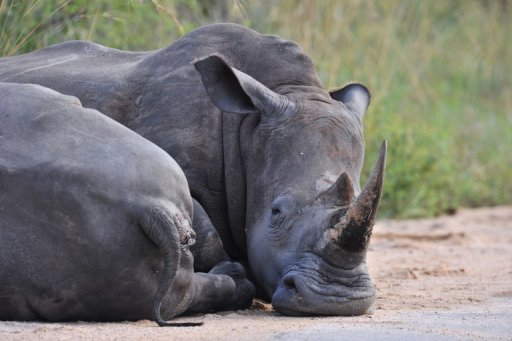JOHANNESBURG – South Africa and Vietnam have agreed to exchange the names of registered hunters in a bid to stop rhino poachers who obtain hunting permits under false pretences, a spokesman said Monday.
Authorities are targeting these hunters who take advantage of laws allowing them to export the rhino horn as a hunting trophy to trade it illegally, mostly on the Asian black market.
"As part of the cooperation between the two countries, Vietnam is going to provide us with a list of accredited trophy hunters," said Peter Mbelengwa, a South African government spokesman.
Over 270 rhinos have been killed illegally in South Africa since the start of the year for their horns.
South Africa's deputy environment minister Rejoice Mabudafhasi and her Vietnamese counterpart Ha Cong Tuan on Monday signed an "action plan" to counter the surge in rhino poaching.
"We will be able to verify the legitimacy of the hunters," Mbelengwa told AFP.
Records of rhino hunting permits show Asians are the largest group of applicants.
Thirteen out of 41 permits granted in KwaZulu-Natal province from 2009 to 2011 went to Vietnamese.
The countries' cooperation plan includes setting up a gene bank and DNA analysis training to track confiscated horns.
The agreement, which builds on a deal inked last year, covers wildlife crime in general, but rhino poaching is the most pressing issue.
Rhino horns are an expensive commodity in Asia, where consumers falsely believe the substance, the same material as human finger nails, has medicinal properties.
South Africa has deployed its army, police and helicopters to stop poaching in Kruger National Park, which has been hardest hit.
Some hunters have been convicted for trading in the horn after legal rhino hunts.
"You can't say we're only going to follow the poachers. You need to take an integrated approach," said Mbelengwa.
Last year a Thai man pleaded guilty to rhino horn smuggling after he paid people to pose as hunters next to animals that had been shot.
He was jailed for 40 years.






















































